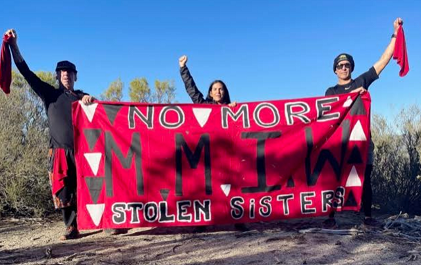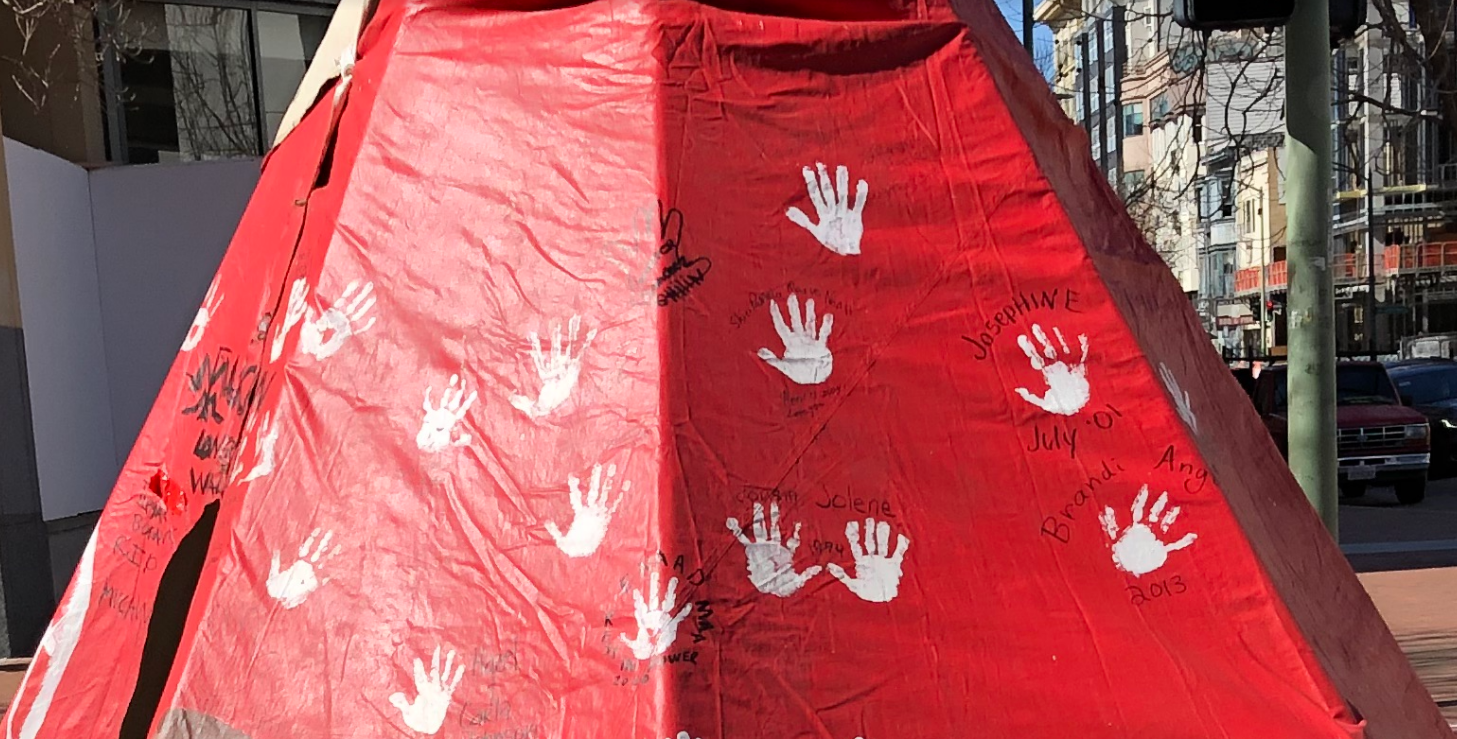
- Details
- By Arthur Jacobs
Hundreds are expected to gather on Sunday, Feb. 20, for a Red Tipi Healing Ceremony in Chula Vista, Calif. in San Diego County for songs, dancing and blessings. The event is planned to honor missing and murdered Native Americans.
Sunday’s event will conclude four days a praying, running, marching to bring awareness to the Missing and Murdered Indigenous Women/Relatives (MMIW/R) epidemic. The event begins at noon and will conclude at 3:00 p.m. - PST.
Want more Native News? Get the free daily newsletter today.
Organizers have billed the event as “7 Peaks for 7 Sisters,” in recognition of seven families whose relatives have gone missing or have been murdered..
The event kicked on Thursday with a three-day run that visit seven peaks throughout occupied Kumeyaay ancestral homelands in San Diego County to represent seven Indigenous women who have gone missing in Indian Country.

Each peak will be dedicated to each missing sister: Jessica Alva, (Pit River), Rose Downwind (Ojibwe), Khadija Britton (Pomo), Marlene Joletta Magee (Kumeyaay), Khiara Henry (Kumeyaay) Nicole Smith (Pomo) and Salina Not Afraid (Crow).
During the Red Tipi Healing Ceremony, members of other families will be able to come forward in a circle to tell their untold stories of missing and murdered in their families.
Help us defend tribal sovereignty.
At Native News Online, our mission is rooted in telling the stories that strengthen sovereignty and uplift Indigenous voices — not just at year’s end, but every single day.
Because of your generosity last year, we were able to keep our reporters on the ground in tribal communities, at national gatherings and in the halls of Congress — covering the issues that matter most to Indian Country: sovereignty, culture, education, health and economic opportunity.
That support sustained us through a tough year in 2025. Now, as we look to the year ahead, we need your help right now to ensure warrior journalism remains strong — reporting that defends tribal sovereignty, amplifies Native truth, and holds power accountable.
 The stakes couldn't be higher. Your support keeps Native voices heard, Native stories told and Native sovereignty defended.
The stakes couldn't be higher. Your support keeps Native voices heard, Native stories told and Native sovereignty defended.
Stand with Warrior Journalism today.
Levi Rickert (Potawatomi), Editor & Publisher
